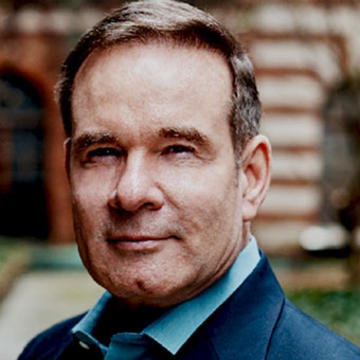How Military Service Impacts the Presidency
Military service was once a prerequisite to winning the presidency—but not for Trump
Donald Trump's victory in November 2024 continued a more than three-decade trend: not since George H.W. Bush’s victory in 1988 had Americans chosen a combat veteran to be their commander-in-chief. Many of our recent Presidents, in fact, did not serve in combat. Bill Clinton controversially avoided the draft. George W. Bush served in the Texas National Guard when the Guard was a place for the rich and well-connected to avoid Vietnam. And while Barack Obama was just 12 years old when the Vietnam War draft ended, Donald Trump received four student deferments and a medical-leave deferment for bone spurs to avoid fighting in Vietnam. Similarly, Joe Biden received five education-related deferments and a medical exemption to help him avoid war.
While some Americans may no longer view military service as a prerequisite for the presidency, it’s important to understand how this attitude is a departure from the past, when wartime experiences shaped the personality and character of those in the White House. John F. Kennedy spoke for his generation when he said, “The war made us. It was and is our single greatest moment. The memory of the war is key to our characters. It serves as a break wall between the indolence of our youths and the earnestness of our manhood.” The war created a bond that could transcend political differences and convince future Presidents that the United States needed to play a vital role in world affairs.
For 36 years, beginning in 1953, every President from Dwight Eisenhower to George H. W. Bush (except for Ronald Reagan, who spent World War II making wartime propaganda films in Hollywood) had been in uniform during World War II. Jimmy Carter, who graduated from the Naval Academy in 1946, missed the war but served on a submarine in the early days of the Cold War.
These veteran Presidents demonstrated enormous personal courage. Instead of using their privilege to avoid service like some later Presidents, they used it to get closer to the battlefield. A mixture of patriotism and maybe even political calculation prompted their determination to get as close to the front lines as possible. For generations, service in the war would be a prerequisite to winning election to office.
Kennedy, who failed the physical for both the Army and Navy, leaned on his father, former U.S. Ambassador to England Joseph P. Kennedy, to get him accepted in the Navy. But the younger Kennedy did not stop there. He then used connections to get assigned to combat in the Pacific. In addition to patriotic fervor, it is possible that sibling rivalry also motivated Kennedy. In their intensively competitive family, Jack wanted to keep up with his older brother, Joseph Kennedy Jr., who left Harvard Law School in June 1941 and was commissioned an ensign the following year.
Richard Nixon was ensconced in a comfortable position at the Office of Price Administration, which exempted him from the draft and yet he enlisted anyway. Much like Kennedy, he lobbied to get assigned to the Pacific. Nixon was already planning a career in politics and realized it would be difficult to explain to voters that he had remained Stateside while Americans risked their lives in combat. Gerald Ford, who had been a committed isolationist until Pearl Harbor, switched overnight to being an ardent internationalist and enlisted in the Navy in April 1942. Although he was already active in Republican politics and planned to run for office, politics did not notably influence his decision to enlist. Like so many others of his generation, he was driven by a strong sense of patriotism and felt compelled to contribute to the war effort.
George H. W. Bush, the scion of a wealthy and well-connected Connecticut family, could easily have avoided the war, but instead he enlisted in the Navy on his 18th birthday. Signing up to fight was a family tradition. He knew that his father had enlisted and fought on the front lines during World War I. Now it was his turn. For Bush the world changed on December 7, 1941. “After Pearl Harbor, it was a different world altogether,” he recalled. “It was a red, white, and blue thing. Your country’s attacked, you’d better get in there and try to help.”
For all of their differences in personality and politics, the Presidents who served in World War II learned the same lesson from their experience. Having seen the horrors of war they wanted to avoid the diplomatic mistakes that caused it.
